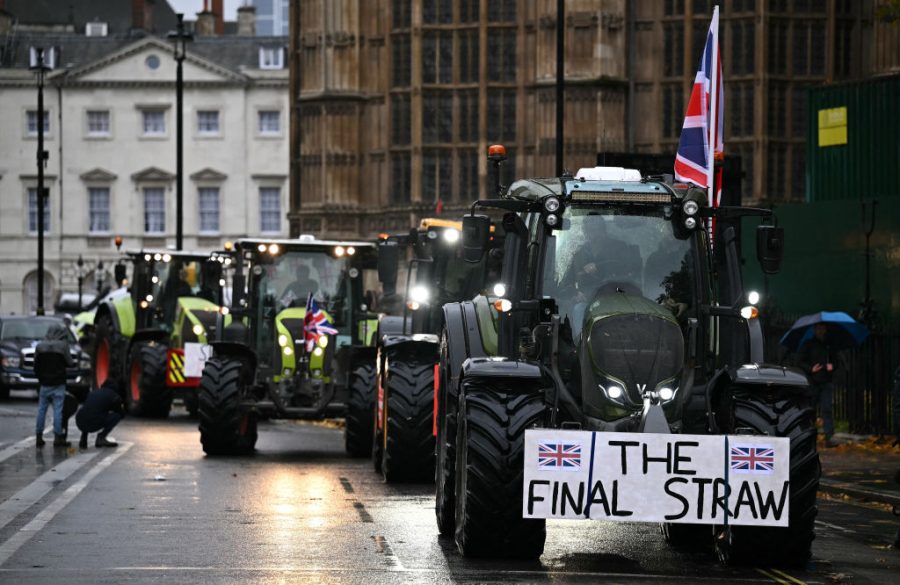Thousands of farmers descended on Westminster today to protest the government’s plans to raise inheritance tax. Hundreds of men, women and children in flat caps, tweed jackets and Wellington boots poured into Whitehall at lunchtime for a rally outside Downing Street. A series of speeches by the likes of Kemi Badenoch and Ed Davey culminated in an appearance by Top Gear star Jeremy Clarkson, before the farmers headed en masse to Parliament Square.
The cause of their anger was the change in Rachel Reeves’ budget which means that from April 2026, inherited agricultural assets worth more than £1 million will be liable to pay the tax at 20 per cent. The National Farmers Union (NFU) and the Country Land and Business Association warn that up to 70,000 farms could be affected. They point to Defra estimates which suggest the changes will impact on 66 per cent of estates; the Treasury counters by claiming it will only affect 28 per cent.
My colleague Michael Simmons looks at the evidence here. But the disparity in sums cited by farmers and ministers points to the chasm that has opened up between Labour and the countryside. It was just four months ago that many rural voters switched from the Tories to back Keir Starmer’s party. ‘A relationship based on respect, on genuine partnership,’ is what he promised the NFU last year. They now feel betrayed at the shift in tone from Labour and its outriders, some of whom seem to relish a fight with the farmers.
Ahead of today’s protest, the Today programme cited a government briefing that referred to farmers as a ‘well-organised, self-serving, noisy lobby and they need to be stood up to’. It is notable that – while Labour MPs now sit for 100 rural seats – the voices of the new 2024 intake were unlikely to be heard in the pre-Budget discussions. No MP for a truly ‘rural’ area sits in cabinet: most represent London, Leeds or Manchester seats. The four-man Defra team sit for Streatham, Cambridge, Coventry and Hull constituencies.
In five years’ time, that may well have changed. The critical mass of the Labour government will likely evolve as more of the 2024 rural MPs move up the ministerial ranks. By then, Labour will hope that rural voters will have moved on from this row and will appreciate increase spending in rural services. But the farming community has a long memory, as Tony Blair’s government found to its cost.
Watch more on SpectatorTV:








Comments